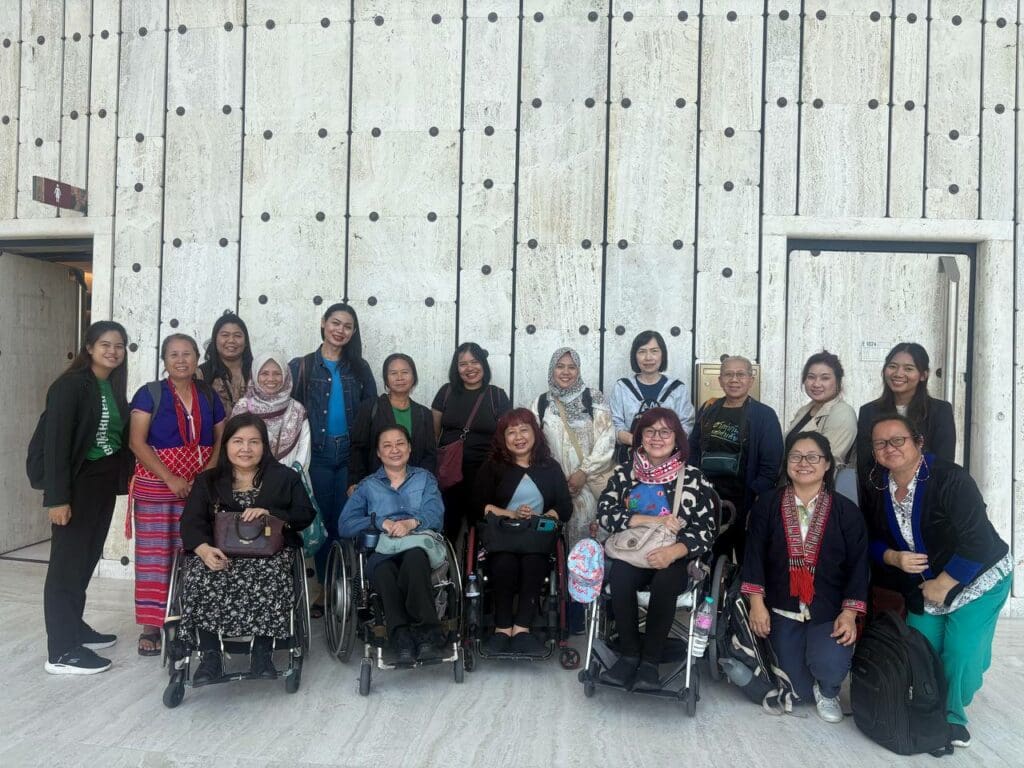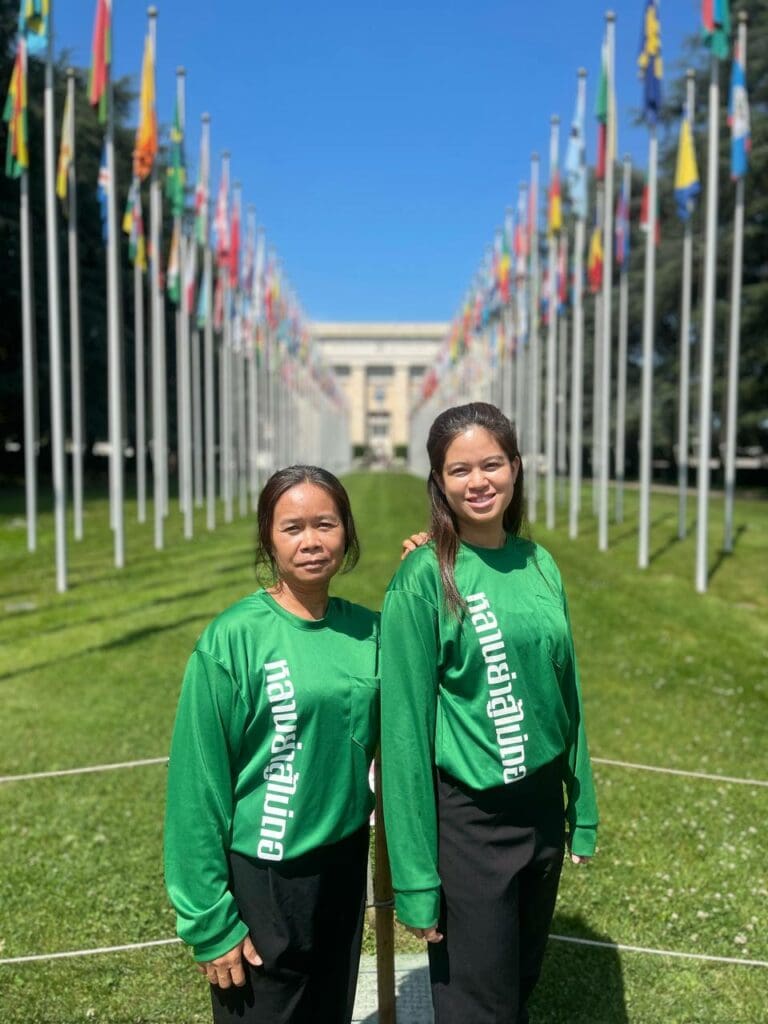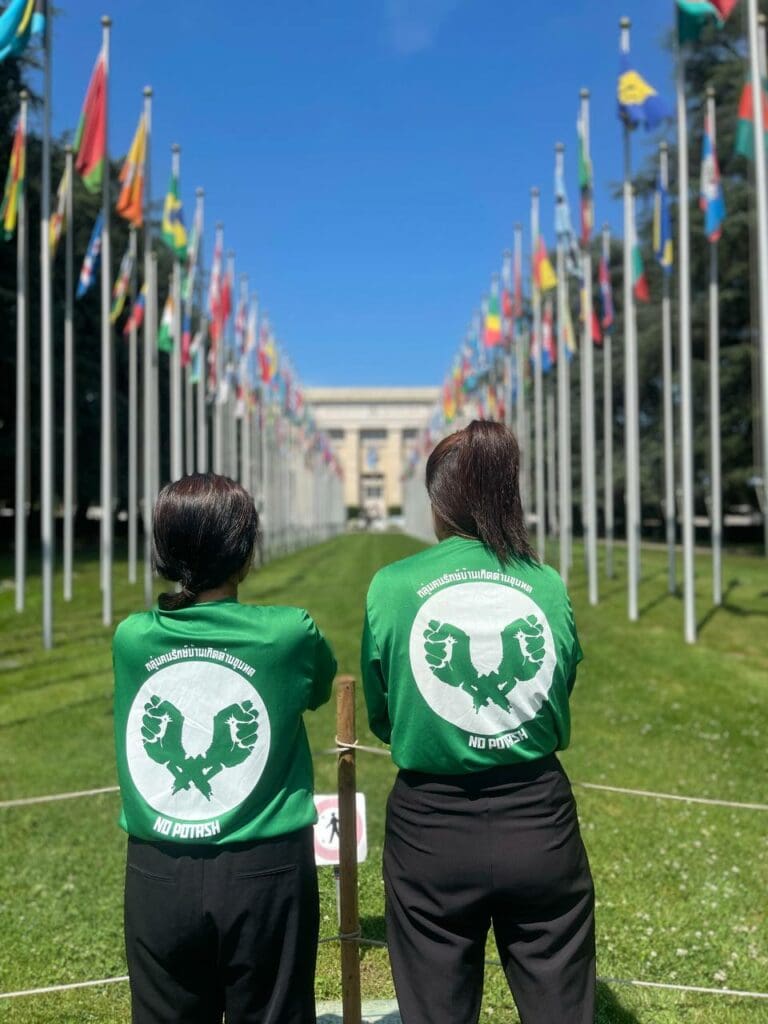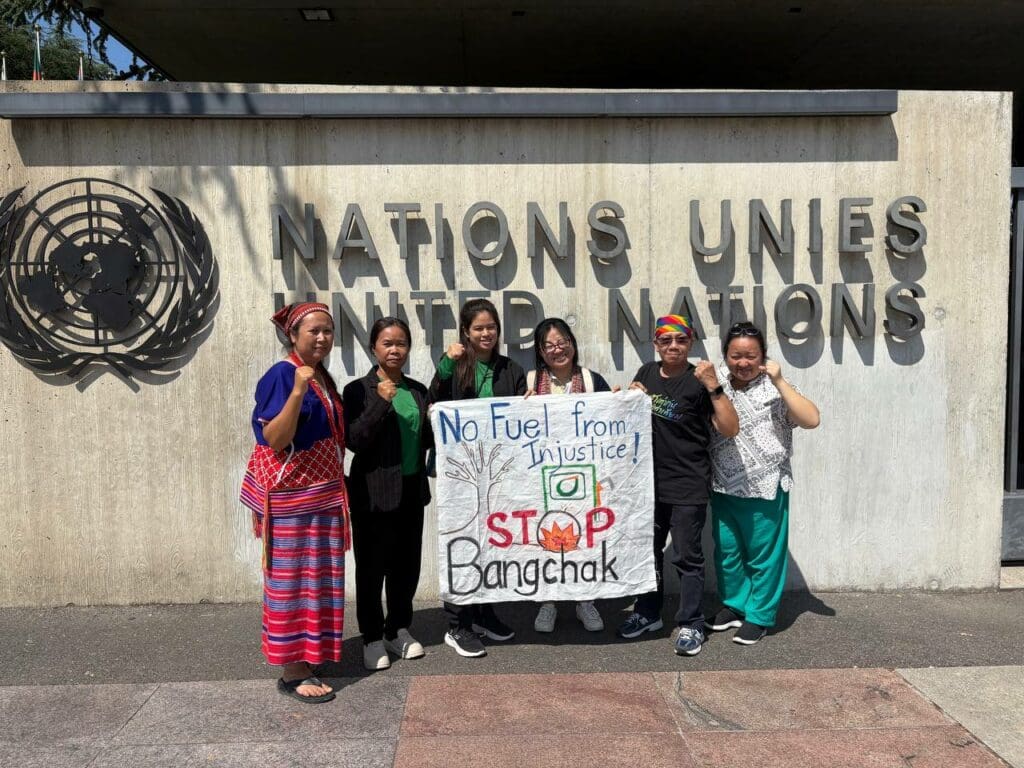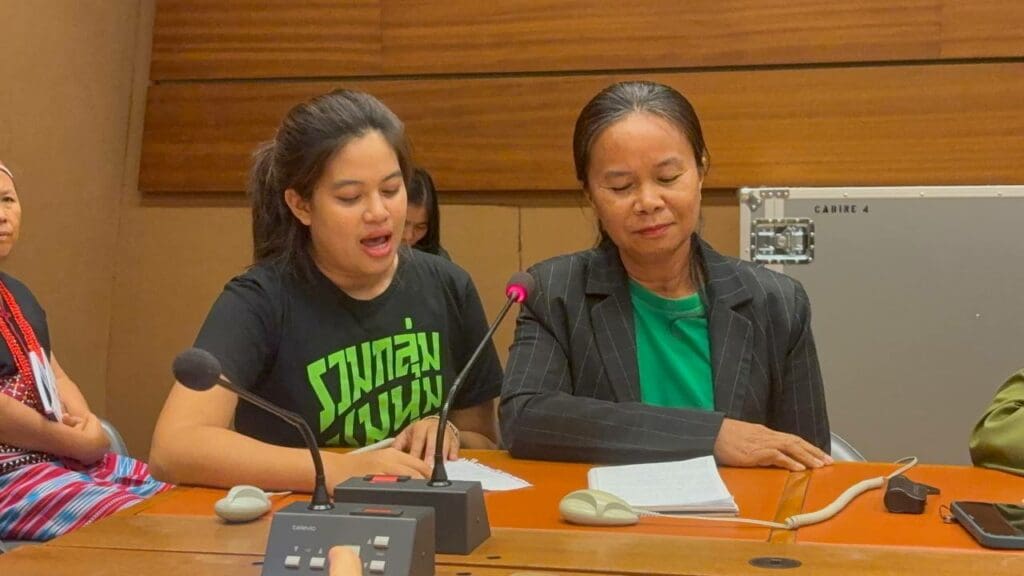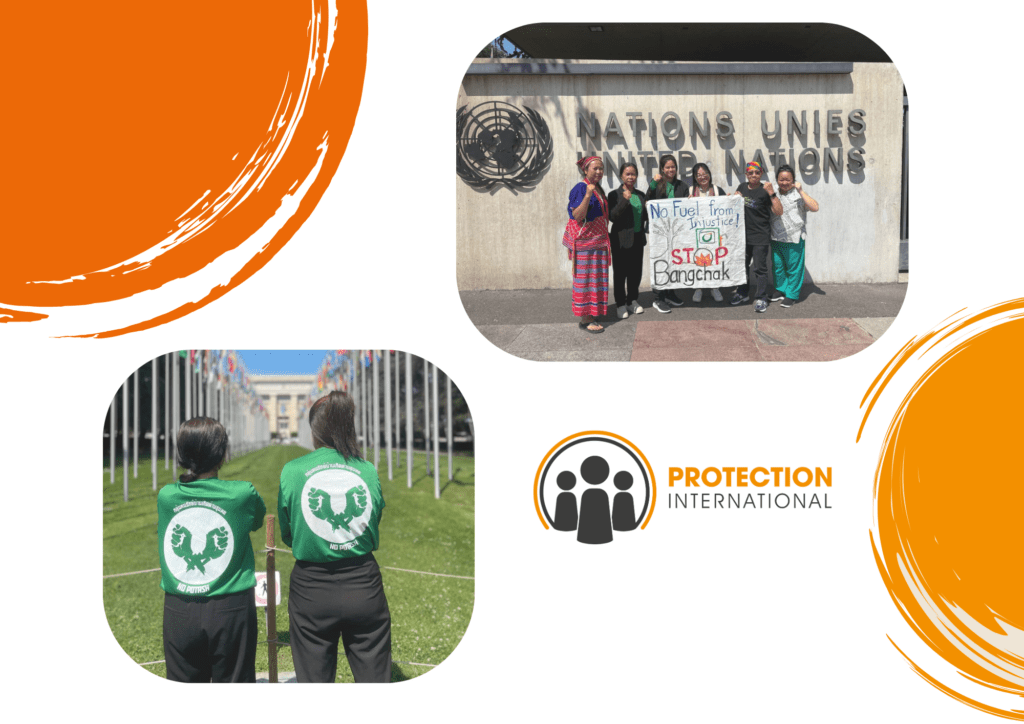We spoke to our Thailand representative Pranom Somwong about Protection International’s participation in this year’s Committee on the Elimination of Discrimination against Women (CEDAW) review, where Thailand was one of the countries under review.
1. Why was PI Thailand at the CEDAW review?
Protection International (PI) Thailand participated in the 91st session of the CEDAW Committee to ensure that grassroots Women Human Rights Defenders (WHRDs)—especially those facing state and corporate violence—could speak directly to international human rights mechanisms.
PI Thailand coordinated closely with the broader Thai civil society CEDAW coalition and played a key role in supporting and preparing WHRDs, including those from LBTQI+, Indigenous, and disability justice movements, to engage meaningfully in the session.
In addition to submitting our own shadow report, we supported the preparation of oral interventions, submitted additional clarifications to the Committee, and engaged with the UN OHCHR as part of the core group facilitating civil society engagement. Our focus was on ensuring that the lived realities of WHRDs—often marginalized in international spaces—were not only included, but centred.
2. Which WHRDs and HRD communities did PI Thailand accompany?
PI Thailand accompanied and directly supported two rural WHRDs to make oral interventions during the session:
Ms. Jutamas Srihutthaphadungkit (Ying), a WHRD and legal advocate and coordinator of the Campaign for Public Policy on Mineral Resources (PPM), working with rural women resisting mining and corporate impunity.
Ms. Jongdee Meelhunthod (Aoy), a farmer and frontline WHRD from Khon Rak Baan Koed Dan Khun Thot Group, leading nonviolent resistance to destructive potash mining in Nakhon Ratchasima.
In addition, PI Thailand supported and collaborated with the broader CEDAW civil society coalition to assist WHRDs from LBTQI+ communities, Indigenous women defenders, and women with disabilities to participate in advocacy spaces, submit evidence, and amplify shared feminist demands.
We are proud that all interventions—especially those by Ying and Aoy—were delivered in both Thai and English, a historic first for Thai grassroots WHRDs at CEDAW.
3. What were the outcomes of the CEDAW review?
The collective effort of civil society and grassroots movements resulted in key successes:
- The CEDAW Committee directly acknowledged issues raised by WHRDs, including strategic lawsuits against public participation (SLAPPs), judicial harassment, lack of legal recognition for defenders, and the gendered impacts of extractivism.
- The shadow reports and oral interventions shaped concluding observations on access to justice, corporate accountability, protection for WHRDs, and the urgent need for legal reforms.
- The participation of rural WHRDs was recognized as a turning point in representation—where international mechanisms responded not to abstract policy briefs, but to voices from the frontlines.
The full CEDAW Committee meeting summaries reflecting this are available here:
4. What Are the Next Steps?
PI Thailand and our partners will translate and disseminate CEDAW outcomes through Thai-language explainers, radio shows, and community posters, focusing on rural areas and marginalized groups.
We also plan to organize public forums and village dialogues to report back to communities and build political education around international human rights frameworks.
Importantly, we will embed CEDAW recommendations into ongoing campaigns, especially on anti-SLAPP legislation, protection mechanisms for WHRDs, and recognition of care work as political labour.
And it goes without saying that we will continue supporting the participation of diverse WHRDs, including LBTQI+ persons, Indigenous women, and women with disabilities, in national and international human rights spaces.
5. What were your impressions from the four days in Geneva?
This was a historic and deeply political moment. For the first time, rural Thai Women Human Rights Defenders (WHRDs)—so often silenced or spoken for—addressed the UN in their own voices and in Thai. Their statements broke through formal UN barriers, moving hearts and shifting political dialogue. They showed clearly: justice must be shaped by those most impacted.
PI Thailand also witnessed the strength of feminist solidarity, as Indigenous WHRDs, sex workers’ rights defenders, women with disabilities, and LBTQI+ activists stood united. Their presence demanded deeper accountability and reminded all that international processes must reflect lived realities.
Yet structural barriers remain—visa issues, language exclusion, financial constraints, and the UN funding crisis all limit grassroots access. Those most affected by injustice are too often excluded—and that must change.
Yet against all odds, our WHRDs made it to Geneva—and they made history.
PI Thailand worked swiftly to transcribe the intervention, translate it into Thai, and share it widely with communities back home. The Khon Rak Baan Koed Dan Khun Thot Group—whose member (Jongdee) Aoy spoke directly to the Committee—was able to watch the intervention online. For many in the village, this was the first time seeing one of their own speak on the global stage. The response was overwhelming: a sense of pride, visibility, and renewed confidence. Community members said clearly: “Now we know international advocacy belongs to us, too.”
As expressed in the opening statement by Protection International Thailand, representing the CEDAW civil society coalition: “Justice cannot be buried beneath potash mines. Listen with radical empathy. Our women defenders are not the disruption—they are the future.”
